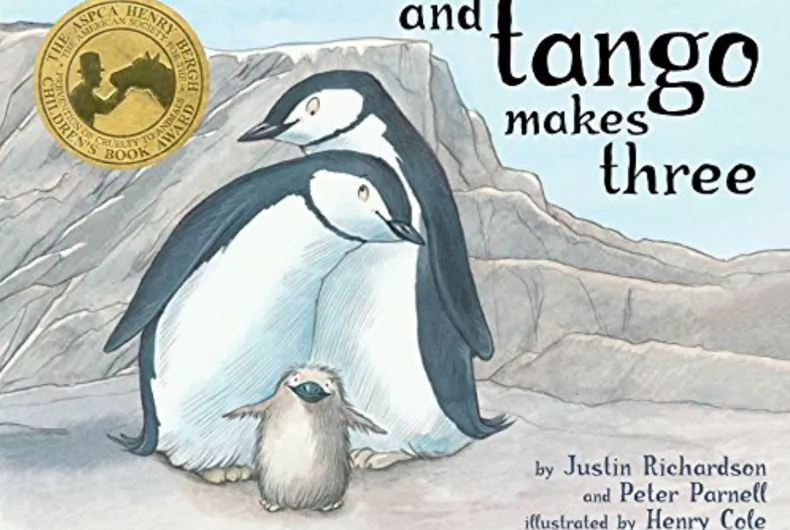Only half of Democrats oppose the Don’t Say Gay law while Republicans love it
Democrats' opposition to the Don't Say Gay law is tepid while Republicans are all-in in their support.

Only about half – 52% – of adults who identify as Democrats say they oppose Florida’s Don’t Say Gay law, while 24% of them say they believe it should be illegal for teachers to discuss sexual orientation or gender identity with kids in elementary school.
While Democrats show only tepid support for allowing books like And Tango Makes Three – which is about a baby penguin with two dad penguins – Republican opposition is strong. 76% of Republicans support the Don’t Say Gay law and only one in 10 Republicans opposes it.
The Yahoo News/YouGov poll found that, overall, only 27% of Americans support allowing discussions of LGBTQ people in elementary schools while half say they should be illegal.
The imbalance between liberals and conservatives may explain why Republicans are making it an issue going into the midterm elections. As unemployment is low and Republican leaders remain unpopular, focusing on straight people’s discomfort with LGBTQ people could be key to getting undecided voters on their side.
Moreover, the lack of familiarity with the subject could make voters more easy to persuade. Supporters of the bill, like Florida Gov. Ron DeSantis’s press secretary Christina Pushaw, have been calling everyone who opposes the bill “probably a groomer or at least you don’t denounce the grooming of 4-8 year old children,” implying that the materials in question are more graphic than a picture book about a girl with two moms.
Opponents of the bill say that its vague terms mean that it will be used to silence any discussion of LGBTQ people. An amendment to change the phrase “sexual orientation and gender identity” to “human sexuality or sexual activity” was rejected by the Florida legislature, showing that the intent is to block discussions about certain identities, not sexual acts.
The polling numbers were “nearly identical,” according to Yahoo! News, when participants were asked about whether parents should be allowed to sue if teachers discuss LGBTQ people in a way that’s “not appropriate” with older students.
The question is similar to language used in the Don’t Say Gay law, which allows parents to sue school districts if discussions of sexual orientation and gender identity aren’t “developmentally appropriate” in any grade. The bill does not define what that means.
